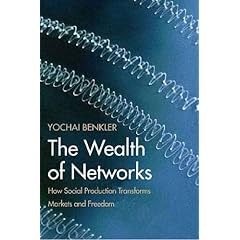The Australian Record Industry Association, 2005
‘On a general note, ARIA considers that any amendment to the reproduction right and its exemptions needs to support new business models and the successful roll out of digital formats and online services. The industry considers that the market requires music products that are tailored to consumer needs and expectations, including home copying. This can and needs to be achieved through product design and technology, not through legislative amendment which distorts the market response to consumer demands.’
And they go on to elaborate:
- It is the goal of record companies, both internationally and in Australia, to support the introduction of new options and business models offering different services and options to consumers at different price points.
- in the short term, technological developments will enable consumers to make a reasonable number of copies of recordings under licence from the copyright owner;
- in the short term, technological developments will provide copyright owners with the means to limit uncontrolled copying of recordings;
- in the short term, technological developments will provide to consumers the flexibility that they are seeking whilst ensuring that, at the same time, Australia continues to be able to meet its obligations under various copyright treaties;
- an abrogation of the rights of copyright owners and creators cannot be justified on the basis that because technology allows private copying to occur (and has done so for
some time), such copying has assumed the status of a “rightâ€;
- there is no problem, because no one has ever been prosecuted for private copying, and while ‘that does not mean that the copyright owners condone that private copying, it clearly demonstrates that copyright owners have not sought to utilise remedies available to them under the Copyright Act to address the problem.’
Notably, ARIA rejected a private copying levy as an idea.
United Kingdom, BPI, 2006:
‘The British music industry is to recommend to the Government that consumers be allowed to legally copy music without fear of prosecution.
The BPI, the body that represents British record companies, believes copyright on CDs and records should be changed to allow consumers to copy music if it is for personal use. Currently, it is technically illegal for anyone to copy a CD onto their computer for the purposes of downloading music onto their own portable music player.
In its submission to the Gowers Review – the independent review body set up by the Treasury to examine the UK’s intellectual property framework – the BPI has asked for the issue of this area of music copyright to be addressed.
Worth noting that it’s not clear from this story whether BPI are recommending a statutory levy of any kind. But still, it’s a notable contrast.
United States, RIAA, for a very long time:
If you choose to take your own CDs and make copies for yourself on your computer or portable music player, that’s great. It’s your music and we want you to enjoy it at home, at work, in the car and on the jogging trail.
So here’s what I don’t get. Why is the Australian position so very different? Is it because here, unlike, say, Canada, where at least there’s been some action in the music industry recently, particularly in terms of the representativeness of CRIA etc, there is so little outcry against the ridiculous position under Australian law? What do people think about this?

